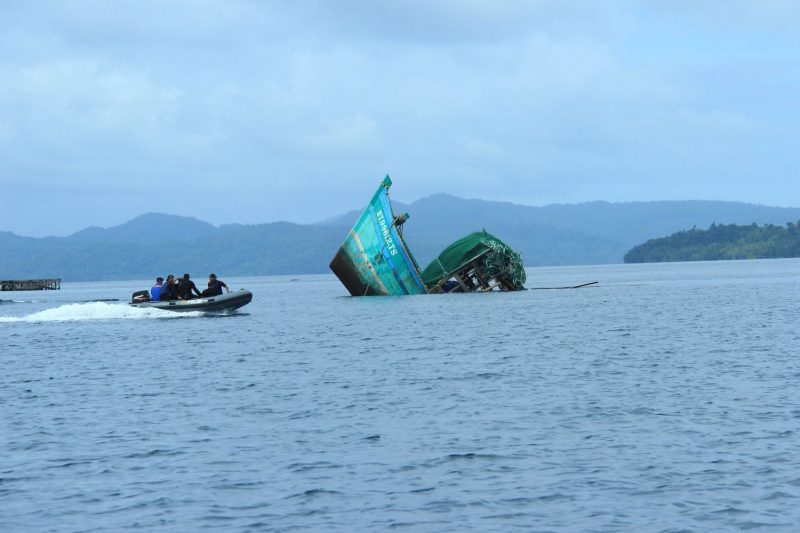Amidst widespread problems of human rights, poverty, and rampant corruption facing Indonesians as witnessed on daily news reports, hope emerged as President Joko Widodo took office in 2014.
His popular appeal of forming a clean government and hailing from a mediocre family was what made many Indonesians feel optimistic for a brighter future. His goals and promises, while not novel, came across as more genuine and seemed to be realistic in their achievement.
One of his more ambitious goals is to make Indonesia a maritime axis. After all, Indonesia is comprised of more than 13,000 islands, making it the biggest archipelagic state, crossing four oceans and possessing the second-longest coastline in the world.
“We have to strive to restore Indonesia as a maritime country. The oceans, the straits and the bays are our future. We have been turning our backs on them for too long,” the president said in his inaugural speech.
Indonesia has indeed turned its back on its oceans for far too long; our naval capabilities are reported to be weaker than those of our neighbouring countries such as Singapore, Thailand, and Vietnam. And while the fortunate geographic location of Indonesia should mean it rains money, millions of Indonesians working in the fishing industry are stuck in poverty.
Dated infrastructure and resources have rendered the country unable to compete, to some extent resulting in widespread illegal fishing, piracy, and even people smuggling; Indonesia loses millions of tonnes of fish worth about US$20 million on a yearly basis.
Rubbing salt into the wounds, Indonesia still has to import fish from neighbouring countries since inadequate infrastructure has meant transporting goods within the nation is too costly.
Jokowi entrusted Susi Pudjiastuti – a controversial choice to many – as the Minister of Marine Affairs and Fisheries to solve the deep-rooted problems and eventually turn Indonesia into a king of the seas. Not long after she took office, news of her orders to blow up illegal fishing ships from neighbouring countries went global. A firm yet divisive move, her reasoning behind this is that such actions will have a deterring effect.
She then held meetings with ambassadors from neighbouring countries, namely Malaysia, the Philippines, Thailand, Vietnam, Australia and China, asking them to join in her efforts to combat illegal fishing. She had conversations with Indonesian middlemen, who lead the way in illegal papers, putting regulations in place – a moratorium for foreign built fishing vessels and a ban on transhipment – to further eradicate Illegal, Unreported and Unregulated (IUU) fishing.
Pudjiastuti also leads the way in blue conservation to empower fishermen and promote growth in the economy. More than 2.6 million fishermen and 140 million Indonesians depend on marine and coastal ecosystems for their livelihoods, but according to the World Bank, almost 65 percent of Indonesia’s coral reefs are threatened as a result of overfishing. Many fish are caught before they mature; a practice, if it continues, will lead to the depletion of fish species in our oceans.
The results of her actions are reflected in a growth in fisheries in Q4 of 2015 and the fishermen’s testimonies about the increase in size and production of their catch. We can now witness little boats catching big tunas, sight unseen for many years.
So, are we close to reaching the president’s wishful goals? The finish line is still thousands of miles away, apparently.
For someone who has spent a lifetime in Indonesia, or even just a day, it’s easy to see how lacking our infrastructure is, causing many to lose a great amount of time on the road instead of working.
As reported by The Economist, it took about 6.4 days in May last year for containers to unload and leave Tanjung Priok, the busiest and most advanced port in Indonesia.
Jokowi says that now with an improved system, they can wrap up in four days; good news, of course. But Singapore can do it four times faster, as reported by the World Bank. And we mustn’t forget how the lorries then have to endure the world’s worst traffic jams once they reach Jakarta.
In addition, the small-scale fishermen who provide most of Indonesia’s seafood are underequipped and have to make frequent short trips due to the lack of freezers, having to sell their catch quickly before it gets spoiled.
Indonesia is blessed with abundant natural resources and should be a prosperous country, and an important player in the world. Our dear president seems to have to be put on turbo mode to increase his speed. And who knows, we might actually have King Triton under our rule and bathe in money one day.
Beyond that, and more importantly, our confidence towards our government may also be restored, and foreign investors may begin to finally see this country as a hidden gem, which has been buried for far too long. It’s nice to feel hopeful and to finally have bragging rights about our government.




